How To Understand Any English Accent With The IDEA Dialects Archive

Updated May 2022.
Imagine if you could listen to the accent of your choice in English whenever you wanted. In fact, imagine if you could listen to recordings of English as it’s spoken throughout the whole world by native and non-native speakers.
Now, close your eyes and picture detailed transcripts to go with these recordings that help you understand them. And of course it’s all free. I’ve just described the tool I’m going to show you how to use in this post: IDEA (International Dialects of English Archive).
Perhaps you’re struggling to understand speakers of particular accents in conversation or when you watch films or TV programmes. Maybe you’re going on a business trip to another part of the world and you want to hear how your business partners pronounce English. It could be that a member of your family is getting married to someone from another country, and you want to practise listening to their variety of English.
Whatever your situation, IDEA enables you to search particular accents by country and region. You can listen to how English varies, not only geographically, but also by gender, age and other variables because for each accent, there are recordings of many different speakers.
I’ve made a short video tutorial that will show you how to use the IDEA website and to practise and develop your listening skills. I hope you find it useful. If you prefer to read rather than watch, just keep scrolling to read the tutorial as a blog post.

How To Understand Any English Accent With IDEA
What Is IDEA?
IDEA stands for the international dialects of English archive. It’s a database with over 1000 recordings of both native and non-native speakers of English. So you can use it to look up a specific accent you’re interested in first by region (Africa, Asia, Oceania etc) and then afterwards by country.

Let’s say you want to listen to different British accents. What you would do is click “dialects and accents” on the home page menu and then on “Europe” and then you choose the country you’re interested in. In fact, ‘British’ is divided into England, Scotland and Wales. Let’s go to the ‘England’ recordings.
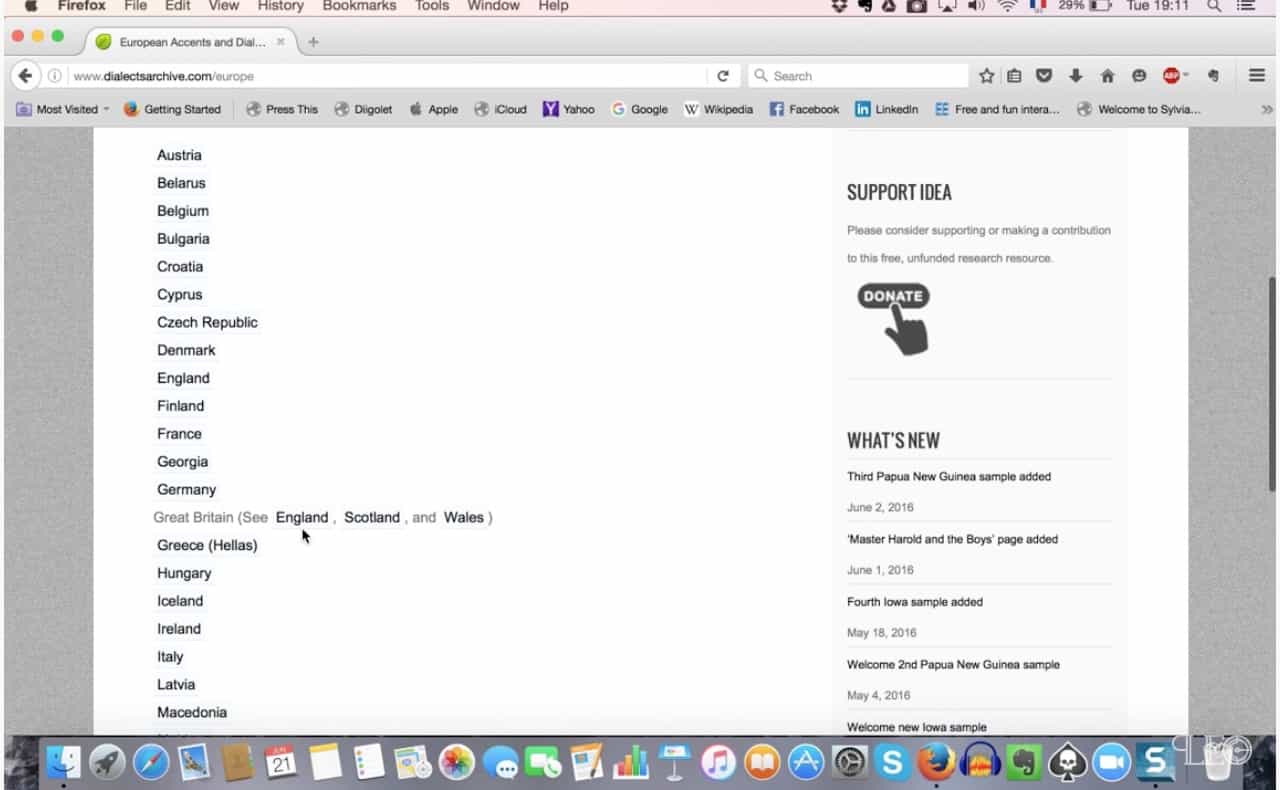
And then in fact the recordings are all divided into specific regions. For instance, you can listen to London accents.
In most, but not all cases, the recording is in two parts:
- the first part is the speaker reading a text aloud
- the second part is the speaker telling a story about their life
The good thing about the second part is that it’s unscripted. So that’s really great if you want to practice understanding fast natural speech.
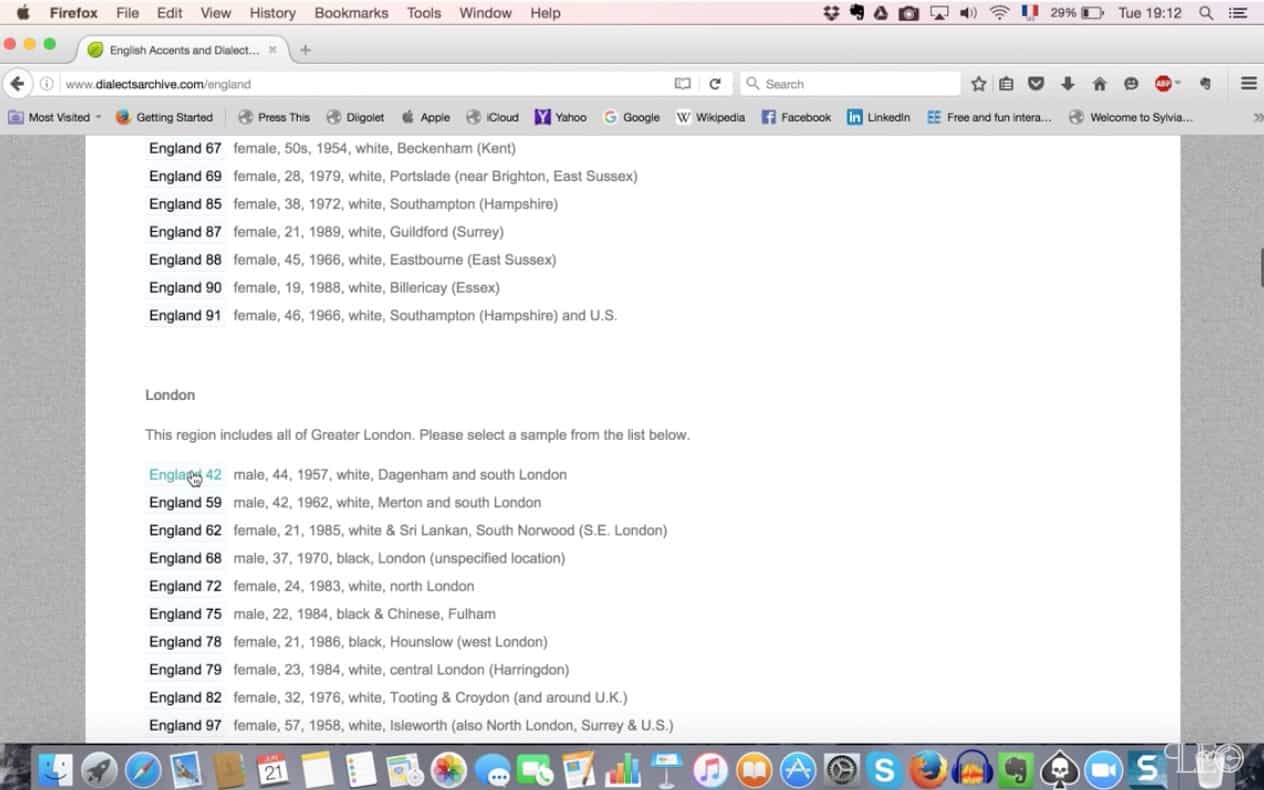
And the best part is, if you scroll down the page you’ll see that there’s a transcription of this unscripted part. So you can listen and read at the same time or do a dictation and then check your answer.
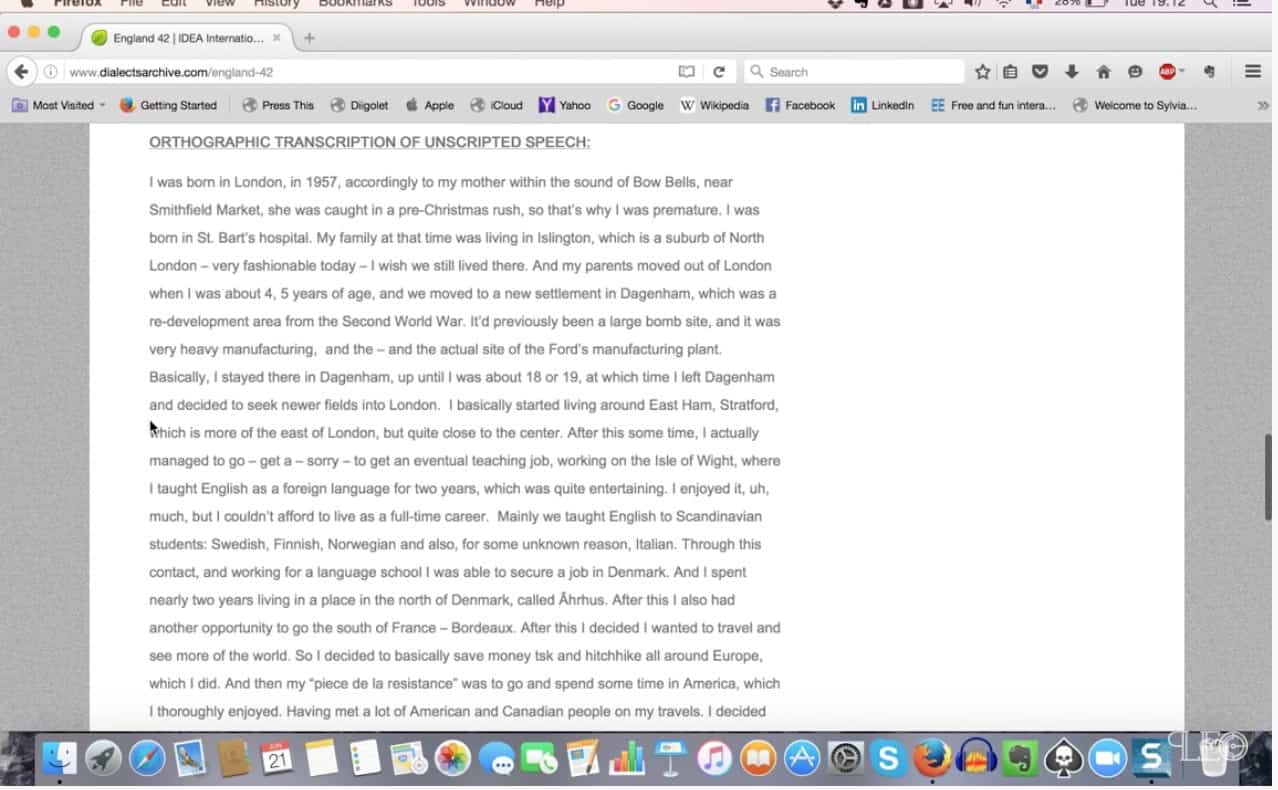
Test Your English Listening Comprehension Skills With Different Accents
And if you’re particularly interested in dictations and I suggest that you visit the ‘Special Collections’ part of the site and go straight to test your comprehension.
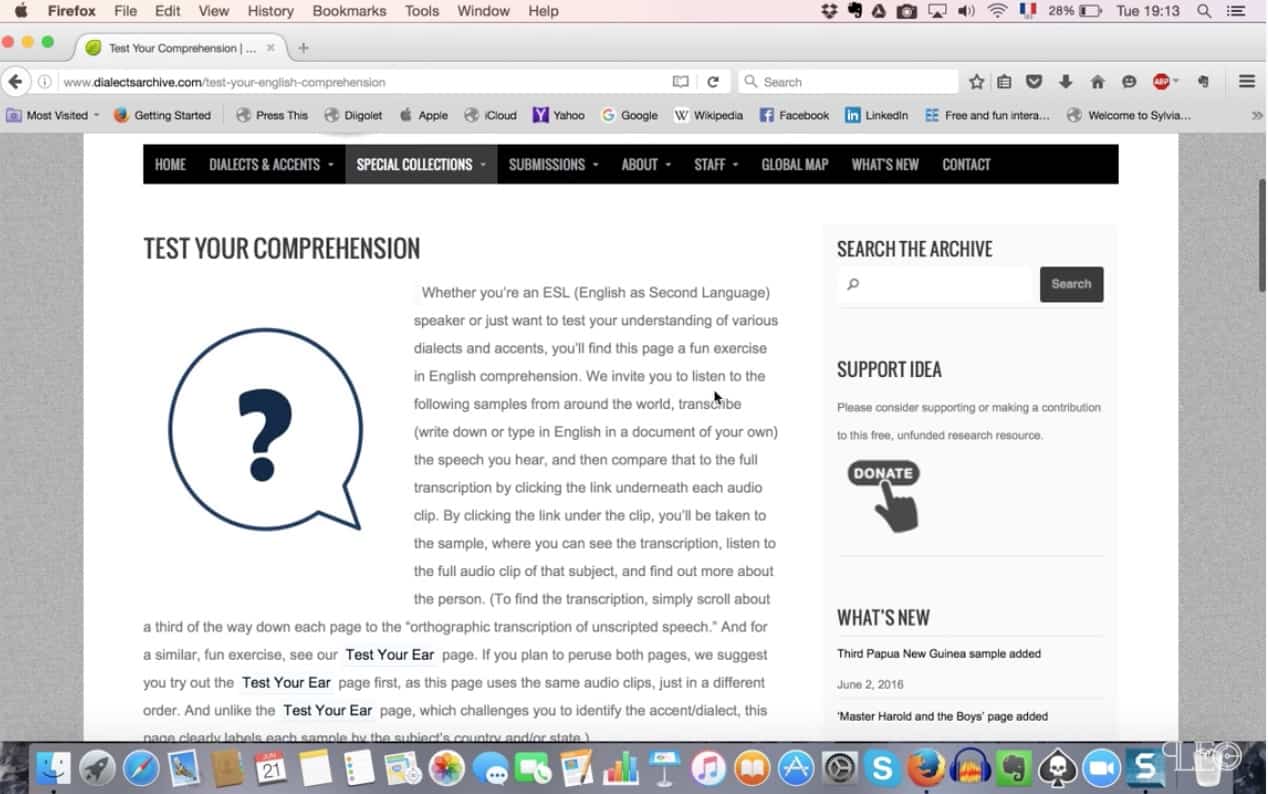
There are around 20 these are all samples of unscripted speech for you to test your comprehension with to see if you can understand different accents of English.
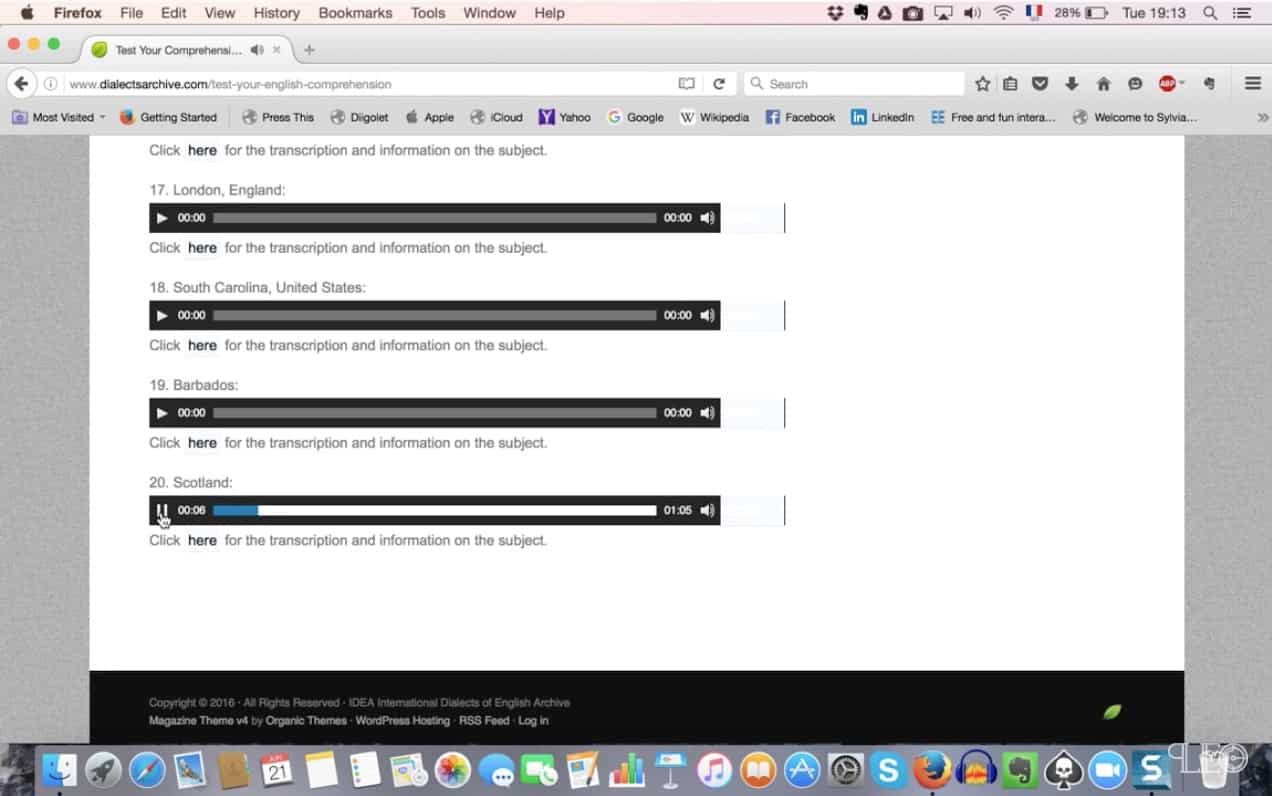
You can listen to the unscripted part try to write down what you hear. And then you click to go straight to the the transcript and the page with the full recording. It’s a detailed transcript, so you’ve got things like hesitations and pauses, which makes it an excellent resource for practicing listening to different accents and understanding the different accents of English.
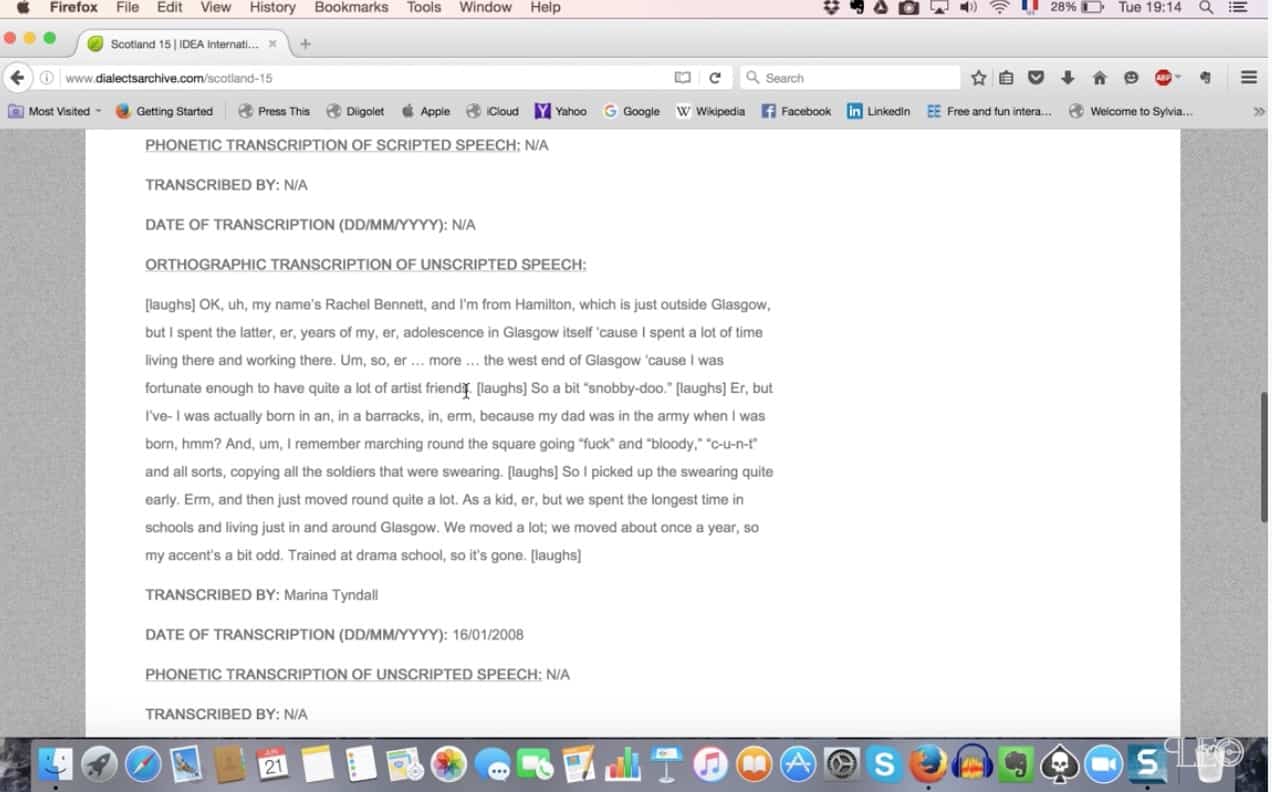
So there you have it – how to understand any English accent thanks to IDEA.
I love IDEA! The director of the project is Paul Meier – a person with whom I consult on accent issues and very specific phonology questions. I love it that we can speak the same language.
What a coincedence! Give my regards to Paul the next time you’re in touch – he’s running a fantastic resource.